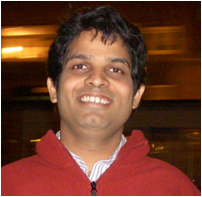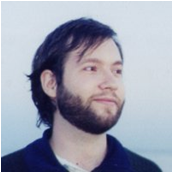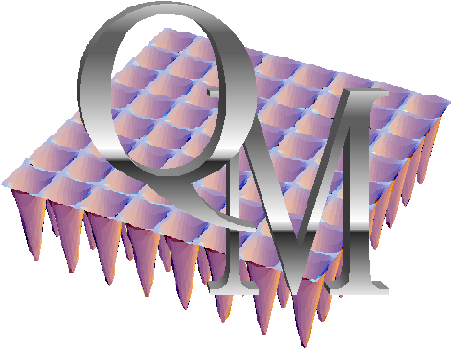W.M. Keck Fellows
 Satyan Bhongale
Satyan Bhongale
I completed my Ph.D. in 2004 in the general area of Ultra-Cold Atomic
Gases, from the University of Colorado,Boulder, under the supervision
of Prof. Murray Holland. Since then I have been actively involved in
research on the strongly correlated regime of trapped atomic gases.
My focus has been on the effect of rotating-induced strong
correlations on the BCS-BEC crossover.
During my post-doctoral position in the Quantum Information group at
University of New Mexico, I was involved in
performing multi-channel scattering calculations of Cesium collisions
in an optical lattice. We focused on developing analytical methods
to compliment the coupled channels calculation for extracting
scattering properties at "negative" energy values.
This information is a must for understanding trap-induced resonances
(occur at energies below the scattering thereshold) and their
applications for quantum information processing.
More recently I have been investigating the prospect of using BEC's
and more generally superfluid states of trapped atomic gases
as probes for quantum measurement. We have proposed a device which we
call the "BEC Level" that allows us to measure extremely
small forces as well as map-out potentiel energy landscapes with
exquisite accuracy. Our work opens a new avenue in the study of
cold quantum gases whereby, the trapped atomic system is cast as a
"tool" ,rather than a "system to be studied".
I joined Rice as a Keck Post Doctoral Fellow in April 2007 working
under the supervision of Prof. Han Pu. We are currently involved in
developing probes that will allow us to detect exotic many-body
states, for example FFLO in an unbalanced two component Fermi gas. We
have sucessfully developed a scheme based on using a matter wave probe
that allows us to quantitatively detect BCS superfluidity. We wish to
extend these ideas for detecting FFLO. Apart from this we have also
developed a probe for detecting spin-incoherent vs spin-coherent
luttinger liquid phases in a 1D trapped Fermi gas.
 Predrag Nikolic
Predrag Nikolic
I graduated from Massachusetts Institute of Technology in 2004. In my dissertation work, titled "Geometrically Frustrated Quantum Magnets" and guided by Prof. T.Senthil, I studied unconventional quantum phases and transitions of various frustrated systems, most notably the quantum Heisenberg model on the kagome lattice. Between 2004 and 2007 I worked with Prof. Subir Sachdev, first at Yale University, and then at Harvard University. My research interests focused on various novel aspects of superconductivity. I studied the role of vortices in unconventional properties of high temperature superconductors, and sought to explain various observations in cuprates, such as Nernst effect, vortex core structure and competing orders in the normal phase, as being shaped by quantum dynamics of vortices. More recently, I have been working on universal aspects of superfluidity near the unitarity limit, which is also relevant to the field of ultra-cold atoms. I have studied the universal phase diagram of interacting fermions in the limit of large scattering length, including both uniform systems, and systems in periodic potentials, as well as cases of population imbalance.
 Gavin Scott
Gavin Scott
I grew up in the San Francisco Bay Area and attained a B.S. in physics at the University of California at Santa Barbara. I recently finished my Ph.D. in physics at UCLA where I studied transport in single molecule transistor (SMT) devices and semiconductor quantum dots. Here at Rice University I will be building on my experience with SMTs to explore quantum critical behavior in nanoscale molecular electronic systems.
Note: The W.M. Keck Fellows positions are currently filled (as of April 1, 2007). If vacancies arise, we will announce that here.
Archived advertisement:
Rice University is pleased to announce the availability of a limited number of W. M. Keck Postdoctoral Fellowships. The W. M. Keck Program in Quantum Materials at Rice is an initiative in which strongly correlated condensed matter is realized using ultracold atoms in optical lattices, carbon nanotubes, single-molecule transistors, two-dimensional electron gases, or other tunable systems. The experimental component is complemented by the study of theoretical models of magnetism and strong correlations. More information, including a listing of the involved faculty, can be found at the program website: keckmaterials.rice.edu; candidates who have previously applied to any of the individual groups need not to reapply. Relevant experience in experimental or theoretical condensed matter or atomic physics is required. The Fellowships consist of an annual salary of $55,000 and an annual allowance of $5,000 for research-related expenses. Candidates should submit their curriculum vitae and a brief statement of research interests, and arrange for three letters of recommendation to be sent to bbraun@rice.edu, with subject line "Keck Search", or to Ms. Barbara Braun, Department of Physics and Astronomy, MS 61, Rice University, 6100 Main Street, Houston, TX 77005. Rice University is an EO/AA employer.
